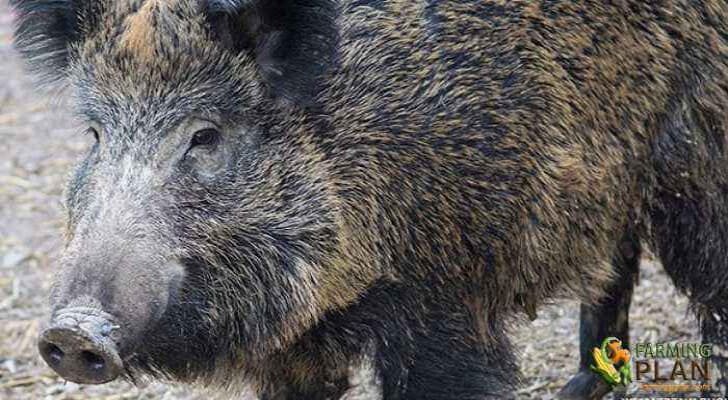Starting a rabbit farm is an exciting venture, and breeding Zika rabbits can be especially rewarding. Not only do Zikas provide high-yielding meat for the industry, but they also make wonderful pets. If you’re considering starting your own Zika rabbit farm, this guide will provide all the information you need to get started. We’ll cover topics such as how to choose a healthy rabbit and maintain their well-being, effective strategies for caring for larger herds of rabbits, tips on marketing your business and products to potential customers, and more! So if you want to discover the joys of becoming a breeder of these unique critters or just learn more about them in general keep reading!

History & Origin
In recent years, the world has become more familiar with the Zika virus and its devastating effects. But have you heard of the Zika rabbit? Originating in Africa, this small mammal was the original host of the Zika virus before it spread to humans through mosquito bites. Though the Zika rabbit is not harmful to humans, its role in the virus’s history and spread is significant. As researchers continue to study the Zika virus and its origins, it’s important to remember the important role that animals like the Zika rabbit play in the chain of transmission.
Characteristics
The Zika virus took the world by surprise a few years ago, and while most of us have heard about it, the Zika Rabbit is still relatively unknown. Similar to mosquitoes that transmit the virus, the little-known rabbit species is thought to be an important host for the disease. With rabbit populations present in areas where the virus is most prevalent, understanding their role is crucial in developing effective strategies for containment and prevention. Scientists are studying the characteristics of Zika Rabbits, such as their behavior and habitat preferences, to gain a deeper understanding of how the virus spreads. As more research is conducted, we may soon know much more about this elusive and mysterious creature.
Feed
Zika Rabbit may sound like a creature straight out of a sci-fi movie, but it is a type of rabbit that has been genetically modified to express a protein found in the Zika virus. This has made them a valuable tool for researchers studying the virus and its potential impact on human health. But what do you feed a rabbit that has been modified to express a virus protein? The answer is a carefully crafted diet that takes into account their unique nutritional needs. These rabbits are given a special feed that includes all the necessary nutrients and is specially formulated to meet their needs. So while they may look like your average furry friend, these rabbits are front and center in the fight against Zika.
Usage
With the rise of the Zika virus, new methods are being explored to control the population of mosquitoes that carry it. One such method involves the use of genetically modified rabbits that have been engineered to produce antibodies against the virus. These rabbits have been dubbed “Zika Rabbits” and they have shown promise in providing a way to reduce the spread of the disease. The idea is to release these rabbits into mosquito-infested areas, where they will mate with wild rabbits and pass on their immunity to their offspring. While still in the experimental stage, this process could become a valuable tool in the fight against Zika and other mosquito-borne illnesses.
Special Feature
The Zika virus has impacted many species, but perhaps none as unexpectedly as the rabbit. The “Zika Rabbit” is a fascinating development. Research has revealed that the virus can cause reproductive issues in rabbits, leading to birth defects in their offspring. This discovery is significant as rabbits have long been used as research subjects in many medical studies. The Zika Rabbit serves as a reminder of just how far-reaching the effects of the virus can be. We must continue to study its impact on different species to fully understand its potential threats and protect our health.
Breeding and Raising Zika Rabbit
Breeding and raising any animal requires dedication, research, and essential supplies. This is particularly true when it comes to the adorable and cuddly Zika Rabbit. Understanding the different breeds, lifespan and necessary resources and supplies is crucial for the success of raising these cute creatures. Whether you prefer the spotted, curly, or traditional solid-colored Zika rabbits, you need to make sure to have the right habitat, a steady supply of food and water, and a safe and secure environment to keep them healthy and happy. Breeding Zika rabbits can be a joyous and rewarding experience, but be prepared for the commitment it takes to raise these furry friends.
Start with the Best Quality Rabbits
If you want to start breeding rabbits, it’s essential to begin with the best quality stock available. Purchasing rabbits from a reputable breeder ensures that you start with a solid gene pool. When considering where to purchase rabbits, look for breeders who are transparent about their rabbits’ health records and genetics. The records should include information about past illnesses, vaccinations, and any genetic issues within the rabbit’s lineage. This attention to detail will give you a strong start in your breeding program, leading to healthy and strong offspring. Unfortunately, not all breeders follow proper protocols, as seen with the infamous “Zika Rabbits” incident. To avoid this, do your research and ensure that your chosen breeder follows ethical and responsible practices. By taking these measures, you can feel confident in the health and quality of your new rabbits.
Provide a Comfortable
If you’re the proud owner of a Zika rabbit, you’ll know that these exotic animals require a warm and comfortable living environment to thrive. To ensure they are healthy and happy, it’s important to pay attention to their housing, ventilation, and diet guidelines. When it comes to housing, a spacious enclosure with plenty of room to move around is ideal. Good ventilation is also essential to prevent the build-up of harmful bacteria that can lead to respiratory issues. As for their diet, fresh hay, veggies, and timothy pellets should make up the bulk of their nutrition. With proper care and attention, your Zika rabbit can live a long and healthy life in your loving home.
Utilize Proper Health Care Practices
As responsible pet owners, it is important to utilize proper healthcare practices to ensure our furry friends stay healthy and happy. One of the most crucial aspects of this is getting your pet vaccinated. Not only does this protect your pet from potential diseases, but it also helps prevent the spread of illnesses to other animals and humans. Additionally, parasitic control and prevention are vital for the overall well-being of your pet. By staying up-to-date on flea and tick treatments, as well as deworming medications, you can prevent your pet from experiencing the uncomfortable and potentially dangerous effects of these parasites. This is especially important when it comes to certain diseases, such as the Zika virus and Rabbit Hemorrhagic Disease, which can be transmitted through mosquito bites and contact with infected rabbits respectively. By taking these preventative measures, you can help keep your pet and their community safe.
Considerations
If you are considering selling your Zika Rabbit meat, it is important to first research and understand the local laws and regulations surrounding the selling of meat products. Different regions may have varying requirements and restrictions for selling meat, so it’s crucial to comply with these guidelines to avoid legal issues. Additionally, you will need to make some decisions about whether you will sell your meat retail or wholesale. Retail options will require more effort to market and attract individual customers, while wholesale offers the potential for larger sales to commercial buyers. Ultimately, weighing your options and carefully considering these factors can help you make informed decisions about selling your Zika Rabbit meat.
FAQ
What are the symptoms of the Zika virus?
Zika virus is an emerging infectious disease that has been widely reported across the globe. It is caused by a virus from the same family as dengue, yellow fever, and West Nile viruses. While most people who are infected with the Zika virus do not get sick, some may experience symptoms such as fever, rash, joint pain, and conjunctivitis (red eyes). Other more serious complications can include neurological syndromes such as Guillain-Barré Syndrome (GBS) and encephalopathies.
What is the incubation period for the Zika virus?
The incubation period for Zika virus is estimated to range from 3–12 days, with the average being 3-7 days. After being bitten by a mosquito carrying Zika virus, symptoms usually begin 2-7 days after exposure and can last up to a week.
How long does the Zika virus last?
The Zika virus has a very wide range of potential effects. The amount of time an individual infected with the Zika virus can experience illness and other symptoms depends upon many factors, including the overall health and age of the person infected.
Conclusion
In conclusion, Zika rabbit are a breed of domestic rabbits developed and raised as a high-yielding hybrid for the meat industry. Their history, origin, and all their characteristics need to be taken into account when breeding, raising, and selling them. To make sure that you get the most out of your Zikas, providing a comfortable living environment, utilizing proper health care practices, and maximizing yields through feeding techniques are key elements. Before selling your Zikas’ meat, it is also important to understand local laws, regulations, and decisions about retail or wholesale options. All in all, if you know how to raise Zikas, you can get a successful yield from these fast-growing albino rabbits!


